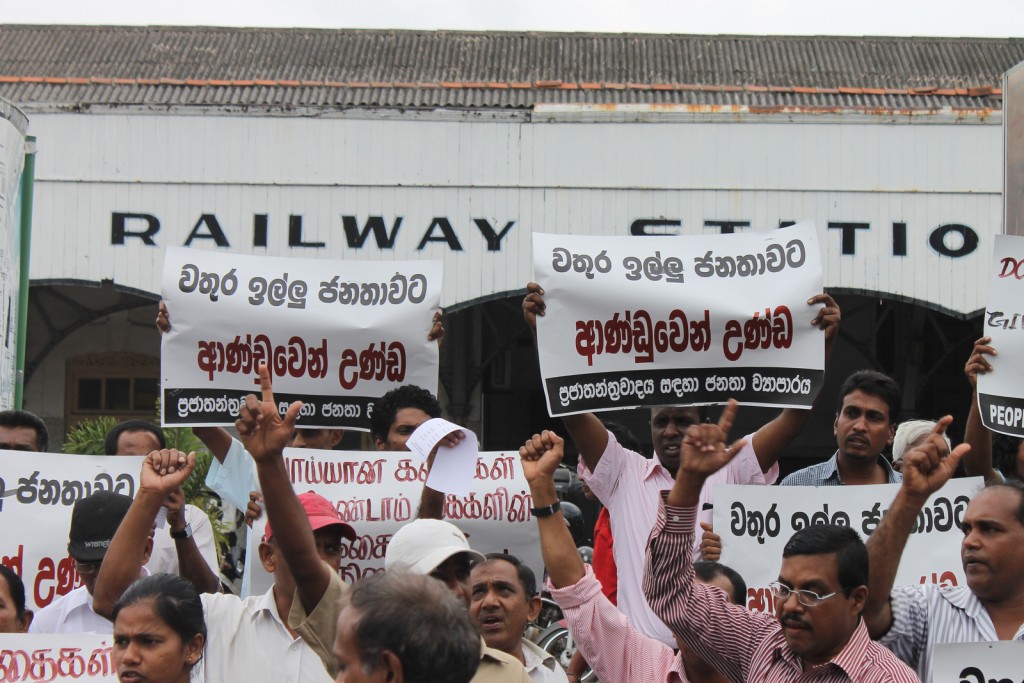Photo courtesy Vikalpa
There are some issues that divide Sri Lankans and there are some issues that unite Sri Lankans. While the cost of living, unemployment and education bring the opinions of the four main communities together, topics such as reconciliation and identity continue to divide.
On the economy, the cost of living is what is mainly on people’s minds. A reduction in the cost of living is what most Sri Lankans would like to see as a result of the current development process along with creation of more jobs and better education facilities. These opinions are similar across the four main communities in Sri Lanka.
However, on the topic of reconciliation, divisions still persist. 26.5% from the Tamil community believe that the Government has done nothing to address the root causes of the ethnic conflict while 35.5% from the Sinhalese community believe that the Government has done a lot. 59% from the Up Country Tamil and 39% from the Muslim communities say that the Government has done a little but not enough.
Some of these key findings from ‘Democracy in post-war Sri Lanka’, an island wide survey conducted by Social Indicator, the survey research unit of the Centre for Policy Alternatives are presented in the infographics below.
Sri Lanka – post war
Download a high resolution version of this info graphic here.
Sri Lanka – economy
Download a high resolution version of this info graphic here.
Conducted for the second time, ‘Democracy in post-war Sri Lanka’ sought to record public perspectives on democracy in Sri Lanka today and the findings presented under seven key sections – Economy and Development, Post War Sri Lanka, The Government, Media, Tolerance, Identity, and Role of Religion and Ethnicity in Politics.
The survey captured the opinion of 2045 Sri Lankans from the four main ethnic groups in the 25 districts. The selection of respondents was random across the country except in a few areas in the Northern Province where access was difficult. Fieldwork was conducted from August – September 2013.
